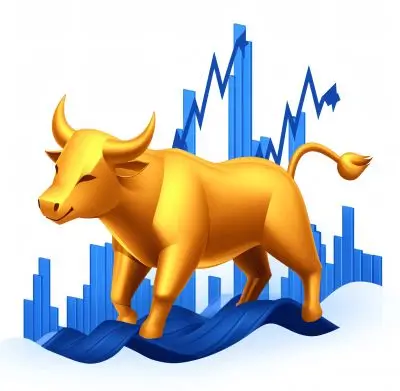Last Updated on February 2, 2026 by Rajat Bhati
How many companies are listed in NSE?
Have you ever contemplated the number of companies listed on the NSE (National Stock Exchange), given that it is the largest stock exchange in India by turnover? Being almost ten times larger than its rival BSE, the NSE has attracted considerable interest from investors, whether they know it or not.

Table of Contents
How Many Companies are Listed in NSE?
Let’s clarify the matter and offer you a conclusive answer. As of 2 February 2026, the total number of companies registered on the NSE stood at 2,781. This figure encompasses 534 companies listed on the Emerge SME (Small and Medium Enterprises) platform.
NSE Listed Companies
To offer additional clarity on the expansion of companies listed on the NSE, let’s examine the statistics from earlier fiscal years:
| Year | Total companies listed in NSE |
| YTD 2026 | 2,781 |
| FY 2025 | 2,622 |
| FY 2024 | 2,379 |
| FY 2023 | 2,137 |
| FY 2022 | 2,012 |
| FY 2021 | 2,003 |
| FY 2020 | 1,913 |
| FY 2019 | 1,799 |
Total companies listed on NSE in FY 2025 mark a slight rise of 10.21% from the previous year’s total of 2,379. While the BSE features a significantly larger total of 5,667 listed companies as of 2 Feb 2026, this includes 701 SME companies; the NSE retains its status as India’s premier stock exchange in terms of turnover, trading volumes, and liquidity.
Read Also: Difference between NSE and BSE
Series Included in NSE
NSE-listed companies are classified based on various criteria, including asset class and compliance, with each assigned a distinct two-letter series. Let’s explore some of these series for companies listed on the NSE:
EQ Series – Equity: The EQ series includes the vast majority of companies listed on India’s largest stock exchange by turnover. As of 2 February 2026, there were 2,104 companies registered on the NSE under the EQ series. Importantly, this series facilitates both intraday trading and the delivery of securities.
Read Also: NSE IFSC Trading In US Stocks: All You Need To Know
BE Series – Book Entry: Previously utilized for rolling settlement until 2 July 2001, the BE series now denotes Trade for Trade securities under surveillance. Securities in this category are settled on a trade-for-trade basis without netting. Intraday trading is prohibited within this series.
As of 2 February 2026, the list of BE series stocks on the NSE included 102 stocks. The decision to shift securities into the Trade for Trade segment is based on factors such as PE ratio, price fluctuations, and market capitalization.
BZ Series – Non-Compliant Equities: The BZ series signifies securities in the Trade for Trade (Z category) due to a failure to meet certain listing criteria. As of 2 February 2026, the roster of BZ series stocks on the NSE comprised 41 stocks.
GB Series – Gold Bonds: Currently, all the bonds in the GB series are issued by the government.
| Series | Description | No. of companies in NSE |
| EQ series | Equity | 2,104 |
| BE | Equity (T2T) | 102 |
| BZ | Equity (T2T) | 41 |
| GB | Gold Bonds | NIL |
| N1 – N9 NA – NZ | Non-Convertible Debt instruments | 552 |
| SM | Equity (SME) | 459 |
| ST | Equity (T2T) | 73 |
| SZ | Equity (T2T) | 2 |
Factors Affecting the Number of Companies Listed in NSE
What is NSE listed companies count 2026? The number of companies listed on the NSE is not fixed; it fluctuates continuously due to various factors, including new initial public offerings (IPOs) and the removal of underperforming companies resulting from mergers, delistings, and other circumstances.
Strict listing standards significantly influence the removal of companies from stock exchanges. Furthermore, mergers and acquisitions have a direct effect on the total count of companies registered with the NSE. Due to the high listing criteria and associated expenses on the NSE, many companies opt to delist voluntarily through open offers. This phenomenon is particularly evident among small-cap stocks and companies that exhibit weak business models.

Conclusion
With 2,781 companies listed, the NSE is recognized as India’s largest stock exchange based on turnover, trading volumes, and liquidity, outpacing its rival, the BSE. The categorization of listed companies on the NSE into various categories offers investors a key perception of their attributes and trading opportunities. However, it is vital to recognize that the number of registered companies on the NSE is fluid, shaped by factors such as new IPOs, mergers, and delistings. By remaining updated on this shifting environment, investors can make better-informed choices in the constantly evolving realm of stock trading.
Interested in NSE? More Articles For You
- NSE IPO News
- NSE IPO Update
- NSE Emerge Platform: All You Need to Know
- NSE IPO Timeline: 1 IPO, 5 SEBI Chiefs, 10 Years
- NSE Unlisted Share Price
- Is NSE Undervalued or BSE Overvalued? NSE IPO May Be the Reset Trigger!
- ASBA e Forms – Download IPO Application Form, BSE & NSE IPO Forms 2026
- Difference Between NSE and BSE – Accurate Comparison
- NSE IFSC: Important Points About Investing in US Stocks
- How Many Companies are Listed in NSE and What are NSE Series?
- NSCCL: 7 Most Important Points about NSE Clearing
- Stock Market Holidays 2026 – BSE, NSE trading holidays
Frequently Asked Questions
How many stocks are listed in NSE?
As of 2 February 2026, the number of companies listed on NSE 2026 is 2,781.
Which are the most popular NSE series?
On NSE, the highest number of companies are traded in the EQ, BE, SM, and ST series. Please check the article for full forms and more details about this series.
What are EQ series shares?
EQ stands for Equity. Normal trading, as well as intraday trading, is done in this category.
What is the difference between EQ and BE?
The key difference between EQ and BE is regarding the nature of settlement. BE series is used to indicate Trade for Trade securities under surveillance and thus, no intraday trading is allowed in the stocks in this series.
How Many Companies Listed in BSE?
As of 2 February 2026, a total of 5,667 companies are listed in BSE, which includes 701 BSE SME companies.



































